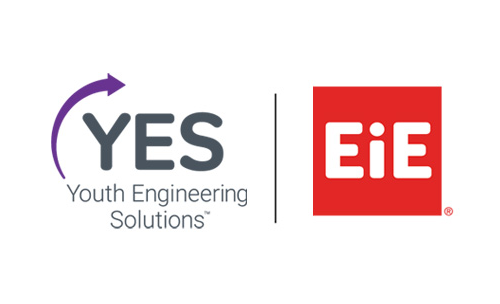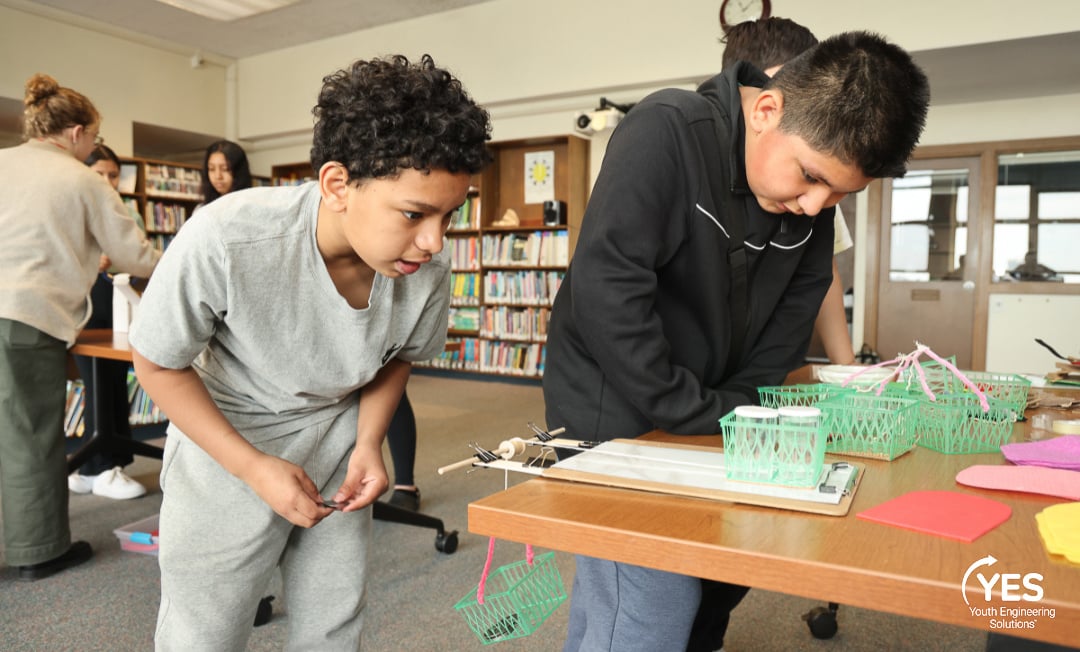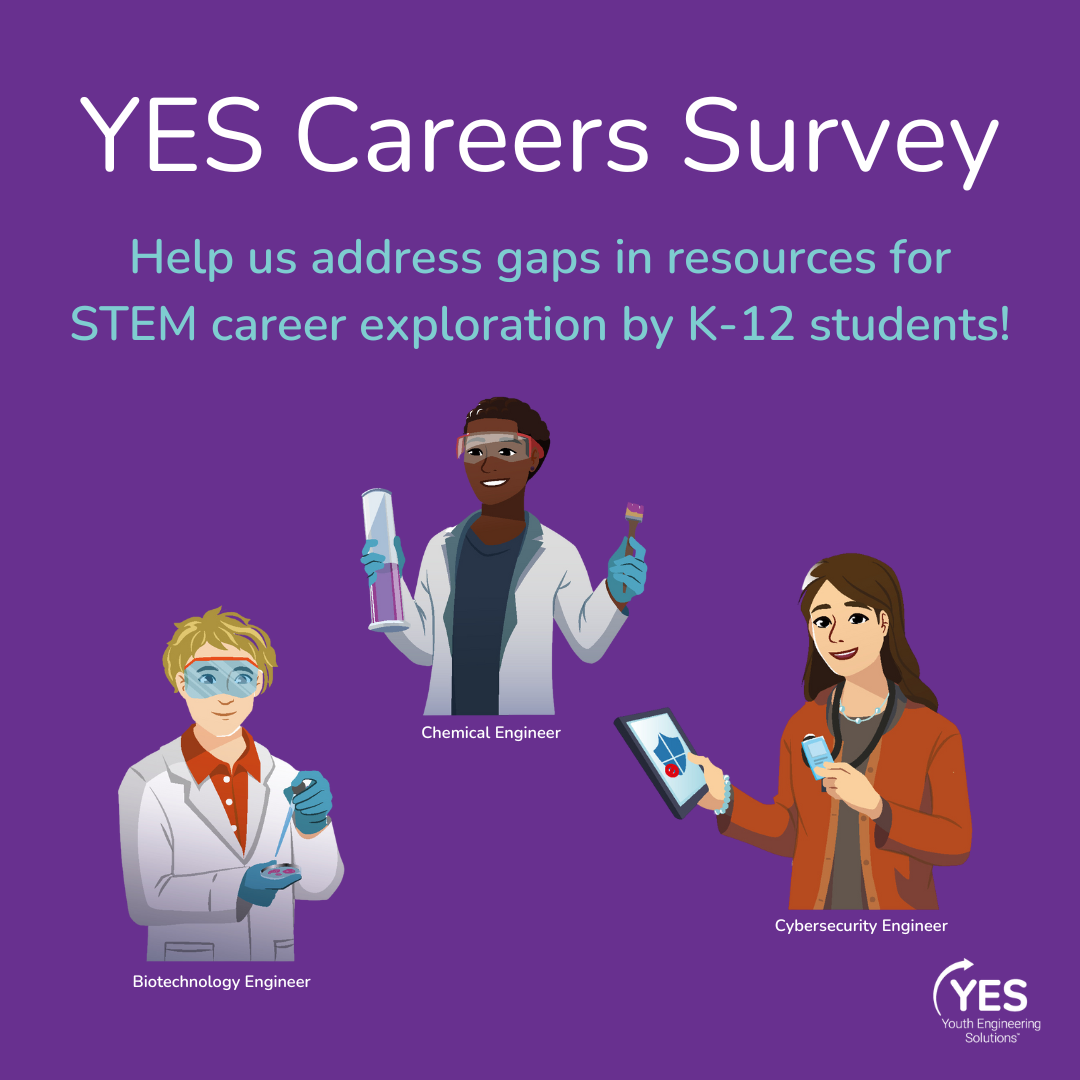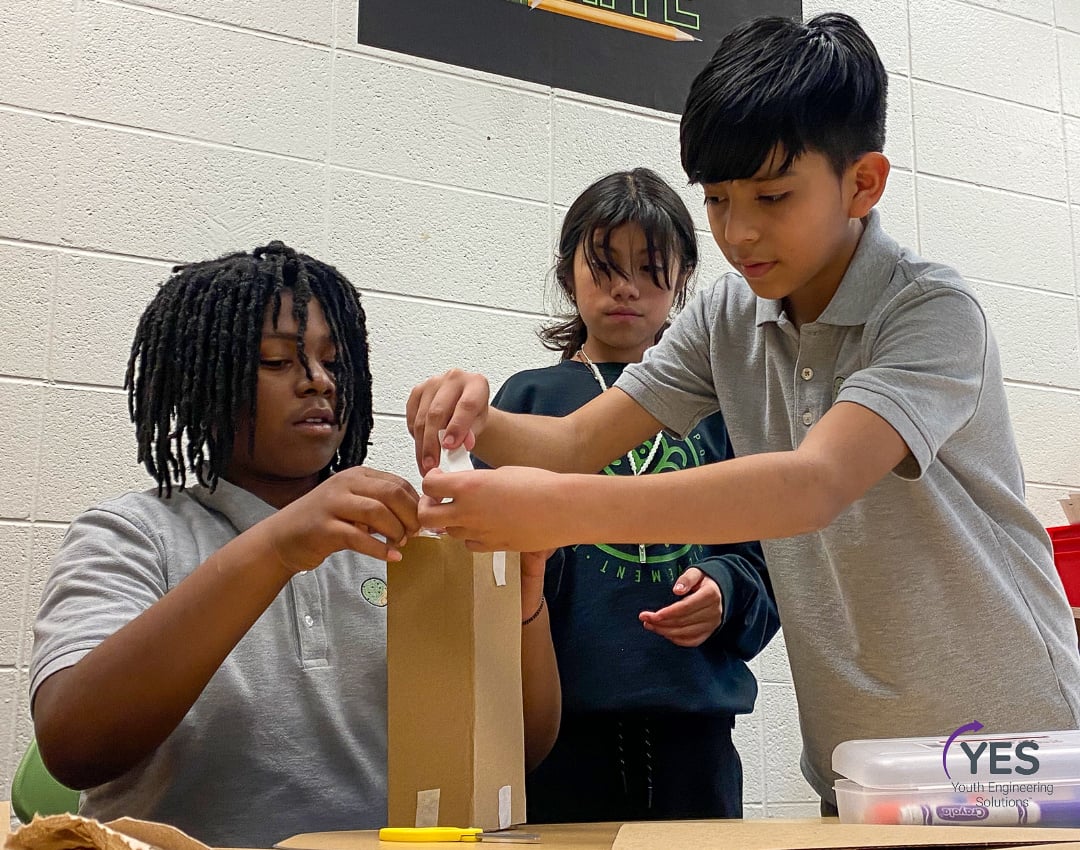YES products have consistently served as a mechanism for introducing youth to engineering careers. Early exposure to STEM-related careers is important in building awareness and sense of belonging in fields where many students may not initially see themselves.
The timing of this career exposure is vital: students form attitudes about careers as early as elementary and middle school, and these attitudes are predictive of the careers they eventually pursue (Tai et al., 2006; Wiebe et al., 2018). By engaging youth at younger ages, these experiences spark interest and inform decisions, such as elective course selection, participation in extracurriculars, and additional learning opportunities.
There is a growing need to expose students to a broader scope of career options beyond engineering. Increasingly, employers are seeing science, technology, engineering and math as orientations to careers rather than tied to specific careers themselves. Given the dynamic and evolving landscape of work, students should think about learning as a lifelong process and envision careers involving a variety of jobs in different fields. Showcasing a wider array of career options—including those in arts, data science, and manufacturing—can help students make more informed choices that align with their interests and strengths and see how STEM is infused in them. With generous support from National Grid, we are developing a more expansive set of career-related resources for our YES Enrichment units.
To inform the development of these resources, we engaged with school personnel, industry professionals, and youth. In a focus group with youth, students noted how career exploration opportunities are often limited and narrow. Students wanted to have agency and choice when engaging in exploration. We intentionally designed our new YES career modules to offer students choices—such as which careers to explore and how much time to spend on each—allowing for more personalized engagement. Using the Advance CTE National Career Clusters framework, these materials feature careers across multiple clusters, emphasizing that a wide range of professionals work together to solve complex societal problems.
We also found ways to emphasize the choices that occur within different careers. We wrote a series of A Day in the Life stories that present students with choices a professional might make in a given situation. For example, how might a health journalist or school nurse respond to the emergence of a new disease? Youth liked how these stories showcased real-world decision-making and dug into the consequences of those decisions.

Students also said that they would like to have one-on-one discussions with professionals. While organizations should strive to provide this gold-standard opportunity for youth, it can be difficult to achieve at scale and with variety, depending on a site’s location and the resources available in the community. The YES approach to this request—what if we film youth interviewing professionals, asking questions that are of interest to them? Would videos of this style be engaging to other youth and answer their questions?
As part of our career resources for the Engineering Antivirals unit, we created videos featuring experts from the Center on Emerging Infectious Diseases at Boston University. To make these interviews youth-centered, we co-developed the filming process with Fenway High School students. The YES team drafted an initial set of interview questions based on the unit’s learning goals. These questions were reviewed and edited by Fenway students, who also added their own questions based on what they wanted to know about the experts’ work and career paths. Finally, two students, Kenzi and Kiya, conducted the interviews themselves, shaping the conversation in real time.

Caption: Fenway High School students, Kenzi and Kiya, interviewing Dr. Cassandra Pierre and Dr. Laura White in the Museum of Science Digital Studio. Photo Credit: YES Staff.
When asked what stood out most from interviewing the experts, Kenzi shared: "The college thing. [Dr. White said] her family had faith in her, but still thought what she was doing was a big step. And that stayed with me because I want to go out of Boston to go to school, so it really just pushed me. It was relatable.” Kenzi’s reflection is a reminder of how meaningful it can be for students to hear personal stories from professionals. Big goals feel more within reach.
Kenzi offers this advice to peers about talking to professionals: “Don’t be scared, get out of your comfort zone, it’s a once in a lifetime thing, so take full advantage of it.” While internet resources and videos are great ways to learn about careers, nothing is better than a one-on-one conversation.
We are currently testing these resources with educators and youth. If you would like to be notified when they are available, please complete the interest form located at the bottom of this linked page: https://yes.mos.org/yes-careers/
Works Cited
Tai, R., Liu, C., Maltese, A., & Fan, X. (2006). Planning Early for Careers in Science. Science. 312, 1143–4. https://doi.org/10.1126/science.1128690
Wiebe, E., Unfried, A., & Faber, M. (2018) The Relationship of STEM Attitudes and Career Interest. Eurasia Journal of Mathematics, Science and Technology Education, 14(10). https://doi.org/10.29333/ejmste/92286







